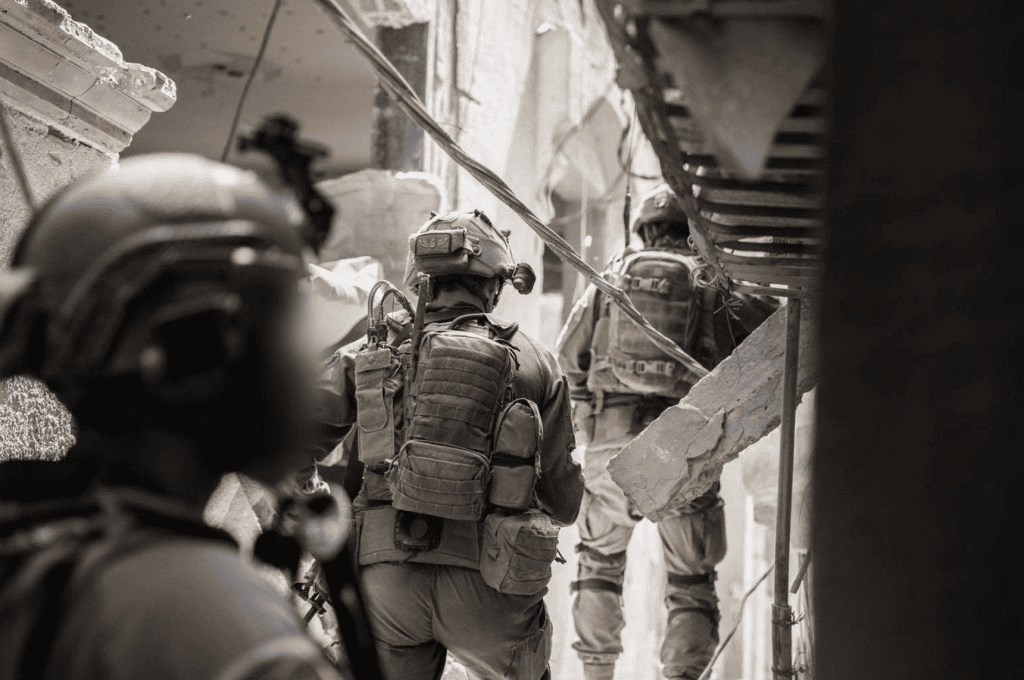
On April 4, sirens sounded in numerous Israeli communities near Gaza. These included sirens in the large Israeli cities of Ashkelon and Netivot. This appears to be the first large barrage of rockets fired at Netivot since January and represents a renewed rocket threat from Gaza.
Sirens also sounded on April 4 in Sderot and in the community of Kfar Aza. On April 3, projectiles from Gaza also targeted the kibbutz of Kissufim on the border of Gaza as well as Sderot. Israel’s Iron Dome air defense system intercepted some but at least one rocket impacted a city street. The volume of rocket fire is not on par with the larger barrages that Hamas and Palestinian Islamic Jihad fired during the first months of the war. In fact, the rocket fire on April 4 appeared to consist of a small number of launches. However, the fact that the groups are able to launch rockets from Gaza proves that they still have rockets and are still able to find areas from which to fire them. The IDF has not sought to hold onto most areas of Gaza, preferring to clear areas in northern Gaza and then leave and position forces outside of the cities and urban areas.
The IDF typically targets rocket launch sites and terrorists who launch the rockets. The IDF said on April 3 that it had “struck the sources of the fire along with several additional launchers and terrorist infrastructures in the Gaza Strip.”
In Gaza, IDF operations continued in several areas. The Gaza Division’s northern brigade operated in Beit Hanoun, an area near the border with Israel. It was backed up by elements of the Kfir infantry brigade. The IDF said that dozens of sites used by Hamas were targeted. Several Hamas gunmen were also encountered.
The IDF also said it eliminated a terrorist cell in central Gaza. “The troops followed the terrorists and identified some of them exiting the terrorist infrastructure and moving around the area. Following the identification, a fighter jet, and additional IAF aircraft targeted the terrorist cell, eliminating them,” the IDF said. Troops also continued to operate in the Amal neighborhood near Khan Younis as well as in the Abasan al-Jadida area near Khan Younis.
On April 3, Israel’s IDF Chief of Staff visited Khan Younis where he met with the IDF’s head of Southern Command and head of the 98th division Brig. Gen. Dan Goldfus. Col. Omer Cohen, the head of the IDF’s Commando Brigade which has played a major role over the last months of fighting, was also present. “We are pressing both to deepen the achievement and we are pressing to try to initiate movement in the negotiations, to bring about an agreement for the release of the hostages. this is a top priority, very important. It will only come from stronger pressure and we will press harder, as much as necessary. We will press harder – you are doing it excellently,” Halevi said. He described a continued but slow operation that is grinding down Hamas. “Another battalion dismantled, another commander killed, another infrastructure destroyed, this is the way to eventually pressure for the release of the hostages.”
Halevi and the IDF have faced criticism over a drone strike that killed seven humanitarian aid workers for the World Central Kitchen organization. The seven were killed overnight between April 1 and 2 as they were traveling from a warehouse in Deir al-Balah along the coastal Rashid road. The three vehicles making up the group’s convoy were around 9 miles south of an area controlled by the IDF where a new pier has been built to receive aid from groups such as WCK. “I want to be very clear—the strike was not carried out with the intention of harming WCK aid workers. It was a mistake that followed a misidentification – at night during a war in very complex conditions. It shouldn’t have happened,” Halevi said on April 3.
On April 4, Israel’s Minister of Defense also gathered top security officials for a situational assessment due to the threat of Iran carrying out attacks on Israel. Iran has vowed to punish Israel after alleging Israel carried out an airstrike in Damascus that struck a building next to the Iranian consulate. The IDF has said that while Israel is in a multi-front war and on high alert, it has not changed guidelines for the home front.







